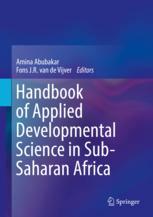

Most ebook files are in PDF format, so you can easily read them using various software such as Foxit Reader or directly on the Google Chrome browser.
Some ebook files are released by publishers in other formats such as .awz, .mobi, .epub, .fb2, etc. You may need to install specific software to read these formats on mobile/PC, such as Calibre.
Please read the tutorial at this link: https://ebookbell.com/faq
We offer FREE conversion to the popular formats you request; however, this may take some time. Therefore, right after payment, please email us, and we will try to provide the service as quickly as possible.
For some exceptional file formats or broken links (if any), please refrain from opening any disputes. Instead, email us first, and we will try to assist within a maximum of 6 hours.
EbookBell Team

4.8
34 reviewsThis handbook collates research evidence and presents the most up-to-date findings on child development in Sub-Saharan Africa. It discusses complex risk factors and medical conditions affecting childhood outcomes, and spotlights emerging programs for enhancing literacy and cognitive development. The panel of expert contributors offer needed context and knowledge to the discussion of previously understudied topics. Chapters present proven intervention strategies currently in use across the diverse region. In addition, this handbook provides guidelines for culturally sensitive and ethical research that will inform practice and help shape policy goals and initiatives.
Topics featured in the Handbook include:· Fatherhood in the African context.
· Sibling care-giving and its implications in Sub-Saharan Africa.
· Nutritional status, infections, and child development
· Diabetes in Sub-Saharan African children.
· How to adapt tests for Sub-Saharan Africa.
· Interventions aimed at children and caregivers.· A culturally sensitive approach to conducting research and promoting initial literacy development in Africa
The Handbook of Applied Developmental Science in Sub-Saharan Africa is a must-have resource for researchers, professionals/scientist-practitioners, and graduate students in child, school, and developmental psychology, as well as pediatrics, social work, public health, and education.